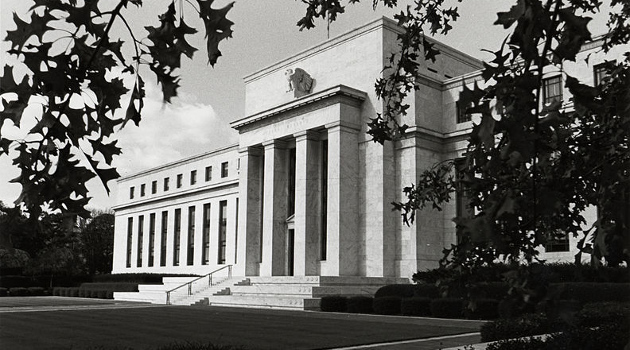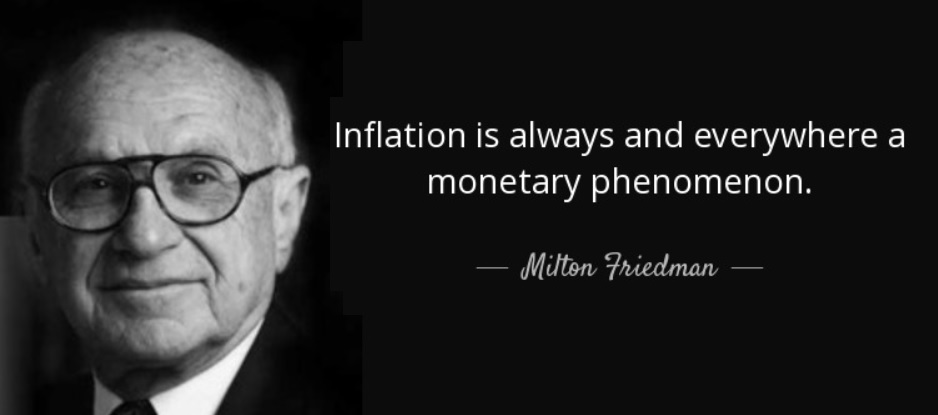Every few years (2012, 2015, 2019), I warn that easy-money policies by the Federal Reserve are misguided.
But not just because such policies eventually can lead to price inflation, which now has become a problem in the United States.
Bad monetary policy also can lead to asset inflation. In other words, bubbles. And it’s no fun when bubbles burst.
The obvious lesson to be learned is that central banks such as the Fed shouldn’t try to steer the economy with Keynesian-style monetary policy.
I’m motivated to write about this issue because the Washington Post recently invited some people to offer their ideas on how to fight inflation.
Some of the ideas were worthwhile.
- Michael Strain recommended trade liberalization.
- Brian Riedl recommended spending restraint.
- Matt Darling recommended deregulation.
Some of the ideas were bad, or even awful.
- Robert Hockett recommended industrial policy.
- Lauren Melodia recommended government-subsidized child care.
- William Spriggs recommended class-warfare taxation.
- Lindsay Owens recommended antitrust intervention.
- Todd Tucker recommended price controls.
If asked to contribute, what would I have suggested?
Being a curmudgeonly libertarian, I would have channeled the spirit of Milton Friedman and pointed out that bad monetary policy by central banks is the cause of inflation. Simply stated, it is appropriate to blame central banks if there are sustained and permanent increases in the overall price level.
And the only way to fix inflation is for central banks to unwind the policy mistakes that caused the problem in the first place.
Some of the respondents did mention the need for Federal Reserve to rectify its mistakes, so I’m not the only one to think monetary policy is important.
But I’m very fixated on assigning blame where it belongs, so I would not have mentioned any other factor.
For instance, in an article just published by the Austrian Economics Center in Vienna, Robert O’Quinn and I explain that bad fiscal policy does not cause inflation.
Are we seeing higher levels of price inflation because of fiscal profligacy? Some Republican U.S. Senators and Representatives have blamed this acceleration of price inflation on Biden’s blowout of federal spending. There are many good reasons to criticize Biden’s spending spree. It is not good for the economy to increase the burden of government spending and push for higher tax rates… But that does not necessarily mean deficit spending is inflationary. …Price inflation occurs when the supply of money exceeds the demand for money… Notably, none of the mechanisms that central banks use for monetary policy (buying and selling government securities, setting interest rates paid on reserves, loans to financial institutions, etc) have anything to do with federal spending or budget deficits. The Fed and other central banks can maintain price stability regardless of whether governments are enacting reckless fiscal policies.
In the article, we cited Japan as an example of a country with huge levels of debt, yet prices are stable.
By contrast, prices are rising in the United States because of Keynesian monetary policies by the Federal Reserve (often with the support of politicians).
What’s causing inflation, if not budget deficits and government debt? …central banks have been pursuing an inflationary policy. But they’ve been pursuing that approach not to finance budget deficits, but instead are motivated by a Keynesian/interventionist viewpoint that it is the role of central banks to “stimulate” the economy and/or prop up the financial market with easy-money policies.
I’ll close by observing that there can be a link between bad fiscal policy and inflation.
In basket-case nations such as Venezuela, Zimbabwe, and Argentina, politicians periodically use central banks to finance some of their excessive spending.
Some governments, particularly in less-developed countries, cannot easily borrow money and they rely on their central banks to finance their budget deficits. And that is clearly inflationary.
Because of changing demographics and poorly designed entitlement programs, it’s possible that the United States and other western nations eventually may get to this point.
Heck, I speculated just a couple of days ago that the European Central Bank may be doing this with Italy.
But the United States hasn’t yet reached that “tipping point.” There are still plenty of investors willing to buy the federal government’s debt (especially since the dollar is the world’s reserve currency).
The bottom line is that we should pursue good fiscal policy because it makes sense. And we should pursue good monetary policy because it makes sense. But the two are not directly connected.
P.S. On the topic of inflation, Ronald Reagan deserves immense praise for standing firm for good policy in the 1980s.
P.P.S. On the topic of the Federal Reserve, the central bank also should be criticized for interfering with the allocation of credit. And financial repression as well.
P.P.P.S. On the topic of basket-case economies, let’s hope that the American policy makers don’t embrace “modern monetary theory.”
———
Image credit: Federal Reserve | United States government Work.




